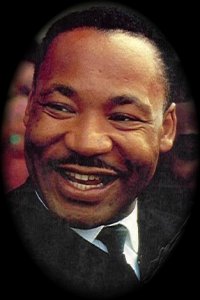
The following conversation was between the Buddha and King Pasenadi from the book
Old Path, White Clouds:"Teacher Gautama, there are people who say you advise people not to love. They say you have said that the more a person loves, the more he will suffer and despair. I can see some truth in that statement, but I am unable to find peace with it. Without love, life would seem empty of meaning. Please help me resolve this.
The Buddha looked at the king warmly. "You majesty, your question is a very good one, and many people can benefit from it. There are many kinds of love. We should examine closely the nature of each kind of love. Life has a great need of the presence of love, but not the sort of love that is based on lust, passion, attachment, discrimination, and prejudice.
Majesty, there is another kind of love, sorely needed, which consists of loving kindness and compassion, or maitri and karuna.
Usually when people speak of love they are referring only to the love that exists between parents and children, husbands and wives, family members, or the members of one's caste of country. Because the nature of such love depends on the concepts of 'me' and 'mine', it remains entangled in attachment and discrimination. People want only to love their parents, spouse, children, grandchildren, their own relatives and countrymen. Because they are caught in attachment, they worry about accidents that could befall their loves ones even before such things actually take place. When such accidents do occur, they suffer terribly. Love that is based on discrimination breeds prejudice. People become indfferent or even hostile to those outside their own circle of love.
Attachment and discrimination are sources of suffering for ourselves and others. Majesty, the love for which all beings truly hunger is loving kindness and compassion. Maitri is the love that has the capacity to bring happiness to another. Karuna is the love which has the capacity to remove another's suffering. Maitri and karuna do not demand anything in return. Loving kindness and compassion are not limited to one's parents, spouse, children, relatives, caste members, and countrymen. They extend to all people and all beings. In maitri and karuna there is no discrimination no 'mine' or 'not mine.' And because there is no discrimination, there is no attachment.
Maitri and karuna bring happiness and ease suffering. They do not cause suffering and despair. Without them, life would be empty of meaning, as you said. Without loving kindness and compassion, life is filled with peace, joy, and contentment.
[...]
It is not just some ideal. It is something which can actually be realized, especially by someone like you who has so many means at his disposal."
[...]
Just because one loves one's own people is no reason not to love the peoples of other kingdoms."
[...]
"The prosperity and security of one nation should not depend on the poverty and insecurity of other nations. Majesty, lastings peace and prosperity are only possible when nations join together in a common commitment to seek the welfare of all.
James's: Foreign policy based on loving kindness and compassion could prevent so many wars.
If you truly want Kosala to enjoy peace and to prevent the young men of your kingdom from losing their lives on the battlefield, you must help other kingdoms find peace. Foreign and economic policies must follow the way of compassion for true peace to be possible.
[...]
If our love is based on a selfish desire to possess others, we will not be able to bring them peace and happiness. On the contrary, our love will make them feel trapped. Such a love is no more than a prison.
[...]
If you want your loved ones to be happy, you must learn to understand their sufferings and aspirations. When you understand, you will know how to relieve their sufferings and how to help them fulfill their aspirations. That is true love. If you only want you loved ones to follow your own ideas and you remain ignorant of their needs, it is not truly love. It is only a desire to possess another and attempt to fulfill your own needs, which cannot be fulfilled in that way.
PHOTO CREDIT: This is a gorgeous painting from my fellow artist Katherine Skaggs who painted my "soul portrait" this past summer. I recommend her art to anyone who likes deep, beautiful art.
-Peace to all beings-

















































